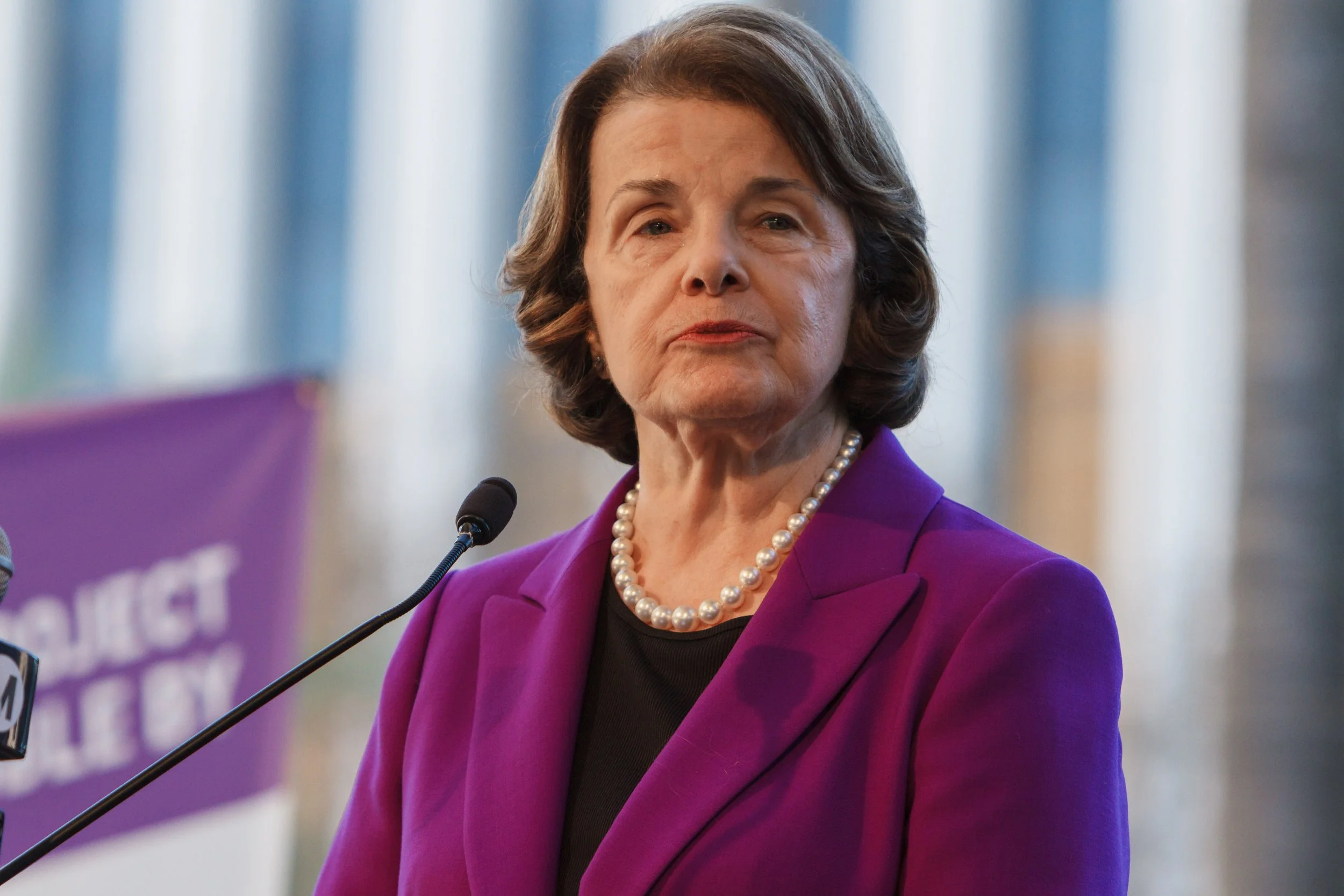Analysis | Chapman reflects on the legacy of California’s first female senator Dianne Feinstein
Feinstein, the state’s first female senator and the longest-serving female senator to date, passed away on Sept. 29. Photo courtesy of Wikicommons
Following the passing of California’s first female senator Dianne Feinstein at age 90, the Chapman community reflects on their senator’s time in office.
Dianne Feinstein passed away in her home in Washington, D.C. on Sept. 29. Her Chief of Staff James Sauls made an announcement the next morning in a statement. She had held a seat in the Senate since 1992 and was planning to finish out her last term in January 2025. Feinstein announced earlier this year that she would not be running for re-election in the 2024 election cycle.
“Feinstein was a pioneering figure in many ways,” said John Compton, a political science professor and the chair of Chapman’s political science department. “She was the first woman to serve as a mayor of San Francisco. She held that job for a decade. She was then elected to the U.S. Senate, where she went on to become the longest-serving female Senator in history.”
“Feinstein was a pioneering figure in many ways. She was the first woman to serve as a mayor of San Francisco. She held that job for a decade. She was then elected to the U.S. Senate, where she went on to become the longest-serving female Senator in history.”
Feinstein was born in 1933 in San Francisco. She received a bachelor’s degree in history from Stanford University and went on to serve on the California Women’s Board of Terms and Parole from 1960 to 1966. From there, Feinstein served as a chair on San Francisco’s Advisory Committee for Adult Detention for two years before earning herself a seat on the city’s board of supervisors. She became the board’s first female president in 1978.
She ran unsuccessfully for mayor of San Francisco in both the 1971 and 1975 election cycles, but ultimately became mayor in 1978 after both Mayor George Moscone and City Supervisor Harvey Milk were assassinated.
As mayor, Feinstein initiated renovation of the city’s renowned cable car lines and dealt with the spreading of AIDS/HIV.
Feinstein made history as San Francisco’s first female mayor and continued to be a trailblazer for women in politics by being elected as the first female senator for the state of California in 1992.
She also holds the title of being the longest-serving female senator in Congress. But, this success doesn’t come without criticism.
“As with anyone who has had a long career in politics, Feinstein has many admirers as well as many detractors,” Compton said.
In her final months, Feinstein was suffering from a case of shingles infection. This led to a month-long hospitalization earlier this year, where she faced lots of scrutiny from citizens and fellow representatives.
Other members of Congress mentioned that they had not been able to meet with Feinstein in her later years and claimed she had grown “detached” from the rest of the congressional district.
Feinstein’s deteriorating health and old age wasn’t just noticed by Congress. The Public Policy Institute of California reported a 10% decrease in Feinstein’s approval rate among residents from October 2022 to June of the following year. At 31%, Feinstein’s approval status was at an all-time low, showing a dramatic decrease from her 51% rating in February 2020.
Feinstein defended the claims against her, saying, "I'm not isolated. I see people. My attendance is good. I put in the hours. We represent a huge state. And so, I'm rather puzzled by all of this."
Despite the negative feedback that Feinstein received in her later years, she still undoubtedly left an impact during her time in office.
She helped lead the way for more women to succeed in politics. There have been three more female senators elected to serve for California since Feinstein’s term began, and there are now 25 women actively serving in the Senate compared to three when she first started.
Along with her legacy of setting the path for women in politics, Feinstein made many other achievements during her service. She introduced the 1994 Assault Weapons Ban, which banned the manufacturing and distribution of semi-automatic assault weapons. She also co-sponsored a bill to ban the use of torture against prisoners during interrogations.
Since her passing, Feinstein’s Senate seat has been filled by Democrat Laphonza Butler, an advocate for abortion rights and a union leader, who is now the sole Black woman serving in the Senate. She was selected by Gov. Gavin Newsom and sworn in Oct. 3 by former Sen. Kamala Harris.
“Feinstein was an independent thinker who viewed politics, not in terms of friends and enemies, but in terms of problems to be solved,” Compton said. “Instead of seeking out the media spotlight, she focused on legislating and oversight, which is the proper role of a Senator. We need more of this pragmatic, policy-oriented spirit in our politics today.”
“Feinstein was an independent thinker who viewed politics, not in terms of friends and enemies, but in terms of problems to be solved. Instead of seeking out the media spotlight, she focused on legislating and oversight, which is the proper role of a Senator. We need more of this pragmatic, policy-oriented spirit in our politics today.”

